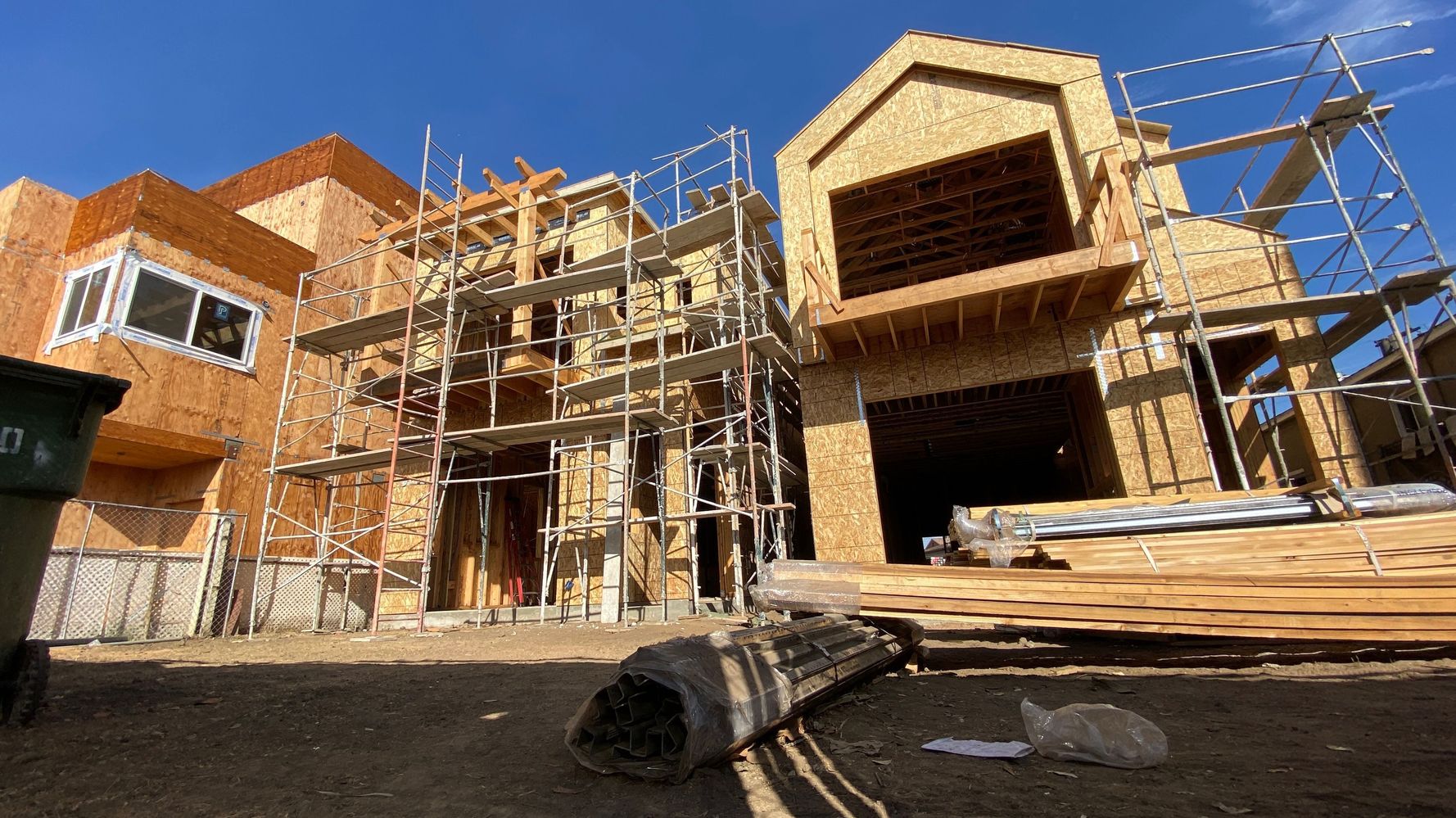[ad_1]
The Biden administration has waded into a quiet but extremely consequential fight over building codes that are supposed to save energy, urging the nonprofit in charge of writing those guidelines to halt a policy change that would limit input from local governments and give the construction and gas industries more power.Â
In a letter sent last week to the International Code Council (ICC), the Department of Energy warned the private consortium, which oversees model building codes used in all 50 states and parts of Latin America and the Caribbean, that the policy change it’s considering could “be detrimental to an appropriate process with appropriate transparency†and stunt “important economic and environmental benefits at the local level.â€Â
“Of particular concern is the role of the thousands of state and local public officials who carry responsibility for codes in their jurisdictions,†Kelly Speakes-Backman, the department’s acting assistant secretary for energy efficiency and renewable energy, wrote in the letter, a copy of which HuffPost obtained. “The need for the proposed changes remains unclear to DOE, and has the potential to significantly constrain stakeholder engagement.â€Â
The letter, addressed to ICC CEO Dominic Sims and the group’s board of directors, requested “that you not proceed with these proposed changes until these questions and concerns can be adequately addressed.â€Â
In a response to the Energy Department last Friday, the ICC said its executive board planned to meet this week to discuss the proposed changes, adding that the possible adjustments were “time sensitive.â€
A delay on the matter will be detrimental to “the adoption of the suite of I-Codes†for 2024, Sims wrote, referring to the various building codes the ICC creates. “Therefore, if the development process is to change, the process will need to be in place to realize a timely release.â€
ICC spokesperson Whitney Doll confirmed the board would meet on Wednesday, but declined to comment on whether the organization would announce a decision on the proposed change on that date.Â
Energy Department spokesman Kevin Liao said the agency did not “have anything to add†to its letter, which marks the White House’s most significant statement yet on the issue. But it also highlights the limits of federal power. Because the ICC’s code is enshrined in state laws, it’s unclear what the administration can do to intervene besides use its bully pulpit.

The issue dates back to late 2019, when the ICC held a routine election on its next round of model energy codes for buildings. Every three years, it drafts new codes and allows local officials from across the country to vote on them, a process the organization says “leaves the final determination of code provisions in the hands of public officials who, with no vested financial interest, can legitimately represent the public interest.â€Â
By that time, hundreds of new government officials had registered to vote after the past two rounds of codes made paltry 1% improvements in energy efficiency. Buildings use roughly 40% of all energy produced in the country, and in most cities those structures are the biggest source of planet-heating pollution. While city officials can control the codes for some buildings, many bigger ones fall under state regulation, which is, in most places, pegged to the model energy codes the ICC creates.Â
When ICC officials tallied votes in December 2019, the new bloc of voters tilted the election overwhelmingly in favor of more aggressive mandates. By a margin of 3-to-1, the ICC voters approved measures, set to come into effect in 2021, that would increase buildings’ energy efficiency by as much as 14% and require that new construction include the circuitry to hook up electric vehicles, appliances and heating systems.Â
Industry groups that have long wielded disproportionate influence over the ICC were outraged. The National Association of Home Builders said the record turnout amounted to “voter manipulation.†The Leading Builders of America said the process was “manipulated†by “special interests.†The American Gas Association appealed to the ICC to overturn many of the approved code requirements.
The ICC overturned some of the measures, including the requirement to prepare new homes for electric vehicles. But the group’s appeals board could not find evidence to support claims challenging government officials’ voting eligibility.
Instead, the appeals board, which included a long-time member of the National Association of Home Builders, proposed its own remedy: Switch the energy code to an energy standard, a separate process that would circumvent government voting.Â
The idea proved divisive. Local officials, environmentalists and architects overwhelmingly opposed the idea in written comments and at a public hearing the ICC held this past January. Of the written comments submitted to the ICC since then, 75% oppose eliminating voting. Of the 25% that supported the change, 54% were builders and 4% came from the fossil fuel industry, namely two trade groups: the American Gas Association and the American Fuel & Petrochemical Manufacturers.
The bottom line is: I can understand why the NAHB doesn’t want governmental voting, because they lost. What I don’t understand is the ICC’s motivations.
Bill Fay, director of the Energy Efficient Codes Coalition
Last month, three influential Democratic House members in a letter to the ICC raised concerns that the influence exerted by the National Association of Home Builders (NAHB) on the code-making process is undermining its “integrity.â€
“Please explain the rationale for this proposal,†Reps. Frank Pallone (N.J.), Bobby Rush (Ill.) and Diana DeGette (Colo.) wrote. Pallone chairs the House Energy and Commerce Committee, Ruch and DeGette head two of the panel’s subcommittees.Â
Advocates echoed federal officials’ concerns.
“Everybody is really concerned about the speed with which this is moving and the fact that there’s been no justification that’s really been plausible for doing it,†said Bill Fay, the director of the Energy Efficient Codes Coalition, which pushed for more aggressive standards. “The bottom line is: I can understand why the NAHB doesn’t want governmental voting, because they lost. What I don’t understand is the ICC’s motivations.â€
Calling all HuffPost superfans!
Sign up for membership to become a founding member and help shape HuffPost’s next chapter
[ad_2]
Source link





